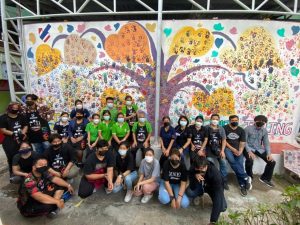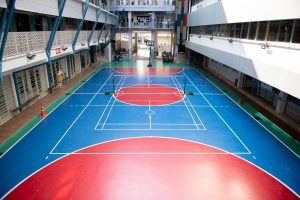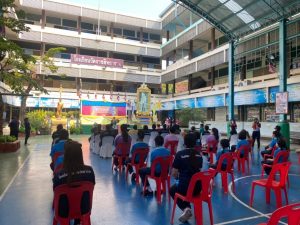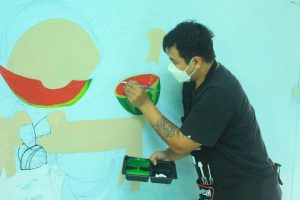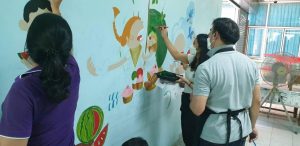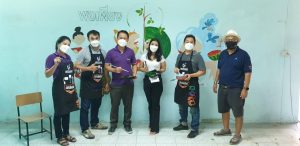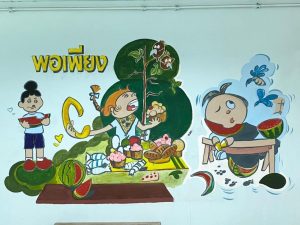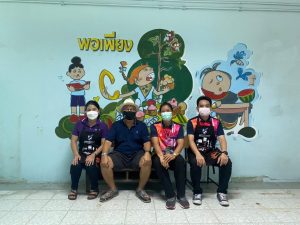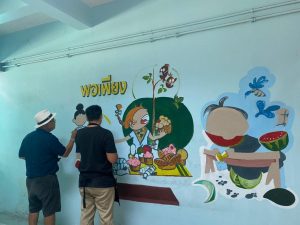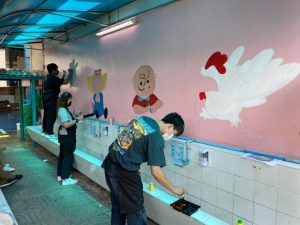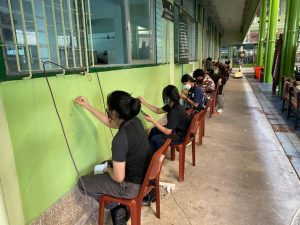
Community service is one of the missions of RMUTP which is carried out in conjunction with teaching and learning activities. This reflects the quality of the higher education institution. In the latest initiative, the Faculty of Engineering and the Faculty of Textile Industries and Fashion Design collaborated with the Anti-Corruption Foundation to organize a community service project titled “Clean Spot Community Campaign against Corruption” on March 1-2, 2565. The project took place at Wat Mongkol Wararam School in Chom Thong District and Wat Ratcha Suttharam School in Bang Kho Laem District, Bangkok. The aim of the project was to establish a network to prevent and combat corruption in the group of teachers, educational personnel, and students, as well as to enhance their roles in monitoring and participating in preventing and combating corruption in various forms within the community.
Miss Malika Wirasai, Acting Director of the Student Development Division, RMUTP, mentioned that the project aimed to create a public art that could communicate and promote collaboration in building attitudes and values in honesty and integrity, as well as to create a clean community network in Bangkok’s 50 districts and 50 schools. This initiative used a collaborative approach known as “Buwo” to prevent and combat corruption within the group of teachers, educational personnel, students, parents, families, and the community. This project aimed to integrate the curriculum into community involvement, thereby strengthening roles in monitoring, participating in preventing, and combating corruption in all forms within the community.
Assistant Professor Vanchalit Tawichai, a faculty member of the Department of Jewelry Design and Production Engineering, Faculty of Engineering, who led the student team to work on the project, stated that the activity aimed to engage students in the anti-corruption campaign through artistic creations. Each student created a cartoon artwork on the school walls as a symbol of resistance against corruption. A total of 11 students from the Faculty of Textile Industries and Fashion Design and 13 students from the Faculty of Engineering participated in the project. They each designed cute cartoon images that conveyed the message of anti-corruption. The student pairs worked together to create images representing clean hands on each school’s wall. The purpose was to let youth within the schools and the local community see and realize the importance of resisting corruption through art.
Assistant Professor Sudakanya Yapdeesod, a faculty member of the Department of Textile Product Design, Faculty of Textile Industries and Fashion Design, emphasized that participating in this project provided students with a platform to express their creativity and ideas in art, while also fostering positive relationships with schools and communities. The schools and communities also gained awareness of values, ethics, and morals, especially among the youth. She mentioned that youth were crucial for the country’s future, and many successful anti-corruption efforts in various countries had been achieved through the engagement of youth. Therefore, it was important to instill values of resistance against corruption within university settings to serve as a positive example for state policy and to expand the scope of such activities into the broader community and society.

